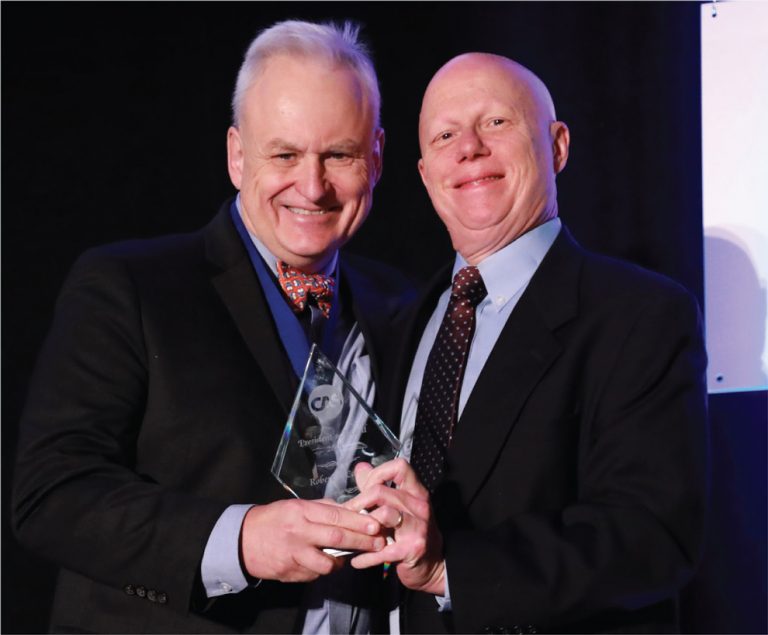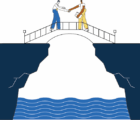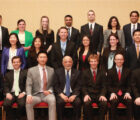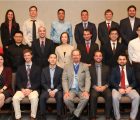
The following is excerpted from the Bob Conger’s Address to New Members, given during the CAS Annual Business Session on November 12, 2018, in Las Vegas.
The lifelong dimension of your actuarial learning arises from two realities:
First, the world we operate in changes continuously and rapidly … I selected the property-casualty side of actuarial work precisely because I foresaw that the impact and pace of change would keep it interesting. I was right! . . .
Lifelong learning — from books and online, classrooms and seminars, especially on the job — will be essential in order for you to keep up, to stay competent, to stay relevant and to enjoy your work …
The second reality is that you will be operating in different environments over the course of your career — different job responsibilities, different products and customers, different competitors, different geographic areas and different employers or clients.
You must develop a strong understanding of both the technical elements and the business context of each situation in order to be effective at that moment of your career and to lay the groundwork for the future moments in your career.
Grab — embrace — every opportunity to learn all that you can … learning is a lifelong journey …
Professionalism is a powerful ally
Qualification standards, actuarial standards of practice, a code of conduct and more — all are components of a remarkable framework that helps us to do our jobs better and, when necessary, to defend our work.
But … professionalism tools and practices become useful only when we use them. And they are most effective when they are part of the culture that you share with your actuarial friends and business colleagues.
I was very fortunate, about 11 years into my career, to join a leading consulting firm, where professionalism was fully baked into all of the daily business practices. But more importantly, professionalism was woven into the very culture of the organization. These people really, really believed in the importance of professionalism as part of how we could do our best work — and best serve our clients, the general public, our firm and ourselves …
Do the Right Thing
My very first day on the job as a consultant, one of the senior partners asked me to follow up with a client regarding a potential expert witness engagement that fit my skill set and experience very well.
Woo hoo! I was positioned to land a six-figure assignment within moments after joining the firm!
I dutifully called the client to learn more about the case and promised to call the client back the next day.
With a lot of guidance from my new colleagues, I then proceeded with some internal research, including checking if we had any conflicts of interest with the engagement. Bad luck! We did have a significant business conflict, and we could not take the assignment!
With a heavy heart, I conveyed the finding to the senior partner. He was disappointed, of course, but he channeled that emotion into a wonderfully positive teaching moment about the practice and then joined me in making the call to the client. He taught me that doing the right thing up front and all along the way, though not always pleasant, saves a boatload of potential trouble later.
Actuarial Work is a Team Sport
A month or so later, for a different client, I was completing my first loss reserve report as a new consultant. I had labored long and hard over the report, and, as far as I was concerned, it was a masterpiece of actuarial work and business writing.
It was time to submit the draft report, proudly, to the peer-review process through which every deliverable is reviewed by another consultant before delivery to the client.
Oh, how my spirits fell when my peer reviewer pointed out numerous ways that the report needed to be improved … I had spent all of my writing energy explaining actuarial procedures — and I had provided very few insights that might actually interest the client …
The final report, after I took the peer-review guidance on board, was vastly more informative to the client than my draft report would have been … the experience directly helped me write better reports in the future.
The peer reviewer also helped me understand that all of her red marks on my paper did not constitute a failing mark for me, but rather represented part of the team process for delivering our very best work to the client. She taught me that actuarial work is best performed as a team sport. In work, as in life, it is great to be part of a good team!
Over time, through immersion in the amazing culture I had joined, I truly came to understand that the actuarial profession’s toolkit, the firm’s comprehensive culture of and approach to professionalism, and the firm’s collaborative and supportive team environment really helped me do my very best work — far better than the work I otherwise could have delivered.
I had discovered that, indeed, professionalism is a powerful ally. One of the most important things you can do, is to make the same discovery.
Ask questions and listen actively
My actuarial career — really, my clients — also have led me to discover that good communications are just as important as good actuarial work.
When my work responsibilities started to include sales … I learned that I possess neither the ability nor the appetite to sell a client an exciting new type of analysis or software tool, if the client doesn’t really need them … By asking questions and by listening very thoughtfully and actively to the answers that came back to me, I quite often would hear what I needed … the client actually telling me what services to offer and to what purpose! Asking questions and active listening were the sales tools I needed!
It turns out that asking questions and active listening are equally valuable when it comes to performing the assignment.
These are the investigative tools that allow us to discover where the real concerns lie, to learn many of the facts we need from the client regarding the business and its operations, and to explore how the business got to be where it is today (and what strategies and solutions have led them here).
Those are some pretty powerful tools!
It really is not sufficient simply to grab a pile of data and grind it through a model.
Of course there comes a time for outbound communications, as well.
I discovered the following in the course of my first consulting peer review described earlier:
- Our actuarial work is not complete until we have translated our work into some business-relevant information, insights and solutions.
- Our actuarial work is not complete until we have delivered that information in a client-relevant context, using client-friendly vocabulary — maybe even a visual aid or two.
- Our actuarial work is not complete until the client is comfortable enough to ask some questions and we have given equally good answers.
It all adds up to good communications are just as important as good actuarial work ….
Bob Conger, FCAS, MAAA, is a consultant for Willis Towers Watson. He is a past president of the CAS, as well as a member and chair of several CAS committees. He currently serves as a CAS international ambassador.











